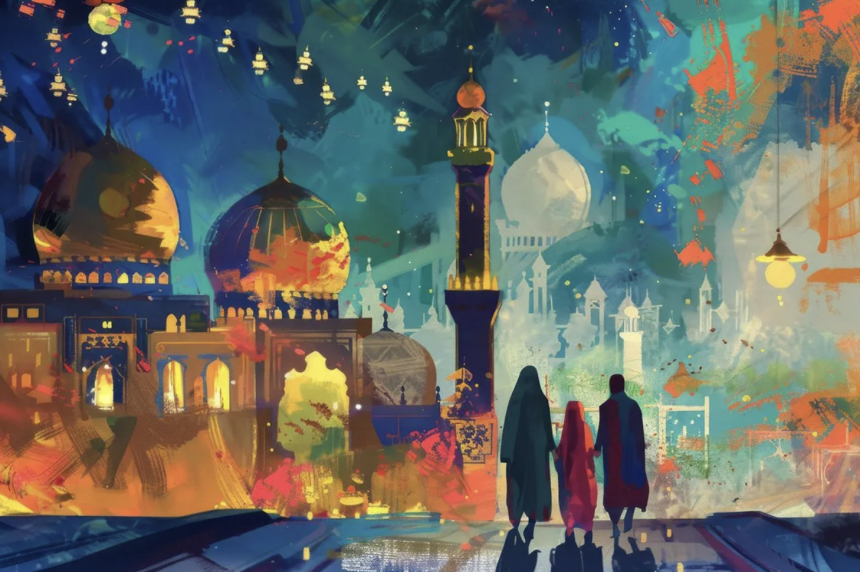For millennia, humanity has grappled with the enigma of death. What happens when our earthly existence concludes? Religions worldwide offer diverse and fascinating perspectives, providing solace, meaning, and a framework for understanding this inevitable transition. These beliefs shape not only how we view death but also how we live our lives.
Accountability for Life Choices
In many Abrahamic traditions, including Judaism, Christianity, and Islam, the concept of an immortal soul is central. These faiths generally posit a linear timeline with a single life followed by judgment and an eternal afterlife. Judaism, while containing some ambiguity regarding the afterlife in its earliest texts, later developed concepts of Sheol (a shadowy realm of the dead) and Gehenna (a place of punishment), alongside the idea of Gan Eden (paradise). Christianity emphasizes heaven and hell, with one’s eternal destination determined by their faith and actions during life. The concept of purgatory, a state of purification for those who die in God’s grace but are not yet fully cleansed, is specific to Catholicism. Islam speaks of a Day of Judgment when Allah will assess everyone’s deeds, leading to either Jannah (paradise) or Jahannam (hell). These traditions share a belief in a divine judge and a final reckoning, where the soul is held accountable for its earthly conduct.
Eastern religions
Eastern religions, such as Hinduism and Buddhism, often embrace the concept of reincarnation, a cyclical process of birth, death, and rebirth. In Hinduism, the atman (soul) is believed to be eternal, transmigrating from one life to another based on karma, the principle of cause and effect. The goal is to achieve moksha, liberation from this cycle, and union with the ultimate reality, Brahman. Buddhism, while not adhering to the concept of a permanent soul, speaks of a stream of consciousness that continues after death, influenced by past actions. The ultimate aim is to attain Nirvana, a state of enlightenment and liberation from suffering. These traditions emphasize personal responsibility for one’s spiritual journey and the potential for growth and purification across multiple lifetimes.
Alternative Beliefs
Other belief systems offer unique perspectives. Some indigenous traditions believe in ancestor spirits who remain connected to the living, offering guidance and protection. Ancient Egyptian religion focused on elaborate rituals and preparations for the afterlife, believing that the deceased could continue their existence in the realm of the dead, provided their bodies and souls were preserved. Various forms of paganism and neopaganism often incorporate beliefs in multiple realms or planes of existence, with the soul’s journey after death varying depending on their actions and affiliations in life.
The Continuity of Consciousness
The phenomenon of past life regression has also contributed to discussions about the afterlife and reincarnation. This technique, often employed by hypnotherapists, involves guiding individuals into a state of deep relaxation to explore what appear to be memories from previous lives. While the scientific validity of past life regression is debated, many individuals report profound experiences that have led them to believe in reincarnation. Eli Bliliuos from the NYC Hypnosis Center is a practitioner trained by Dr. Brian Weiss who facilitates past life regression in New York and Florida. He has worked with numerous clients who have recounted detailed memories of past lives, often revealing patterns and connections to their current life experiences. These accounts, while anecdotal, offer compelling narratives that resonate with the concept of reincarnation and the continuity of consciousness beyond physical death.
It is important to acknowledge that these are just brief overviews of complex and nuanced belief systems. Each religion contains a rich tapestry of interpretations and traditions, and individual beliefs within these faiths can vary significantly. Regardless of the specific details, these diverse perspectives on the afterlife provide comfort, meaning, and a framework for understanding our place in the universe. They encourage reflection on our actions, values, and the legacy we leave behind, prompting us to live more consciously and meaningfully in the present moment. While the ultimate truth about what happens after death remains a mystery, the diverse beliefs across religions offer a rich tapestry of possibilities, inviting us to contemplate the profound questions of existence and the nature of consciousness itself.
Lynn Martelli is an editor at Readability. She received her MFA in Creative Writing from Antioch University and has worked as an editor for over 10 years. Lynn has edited a wide variety of books, including fiction, non-fiction, memoirs, and more. In her free time, Lynn enjoys reading, writing, and spending time with her family and friends.















